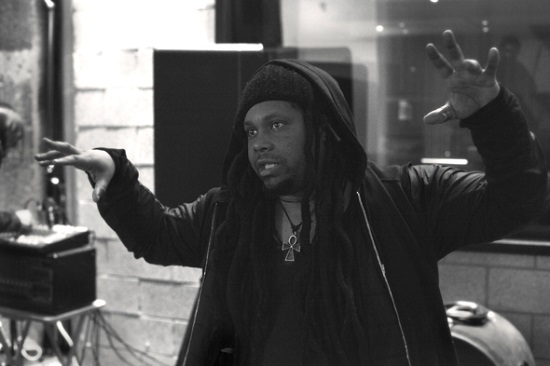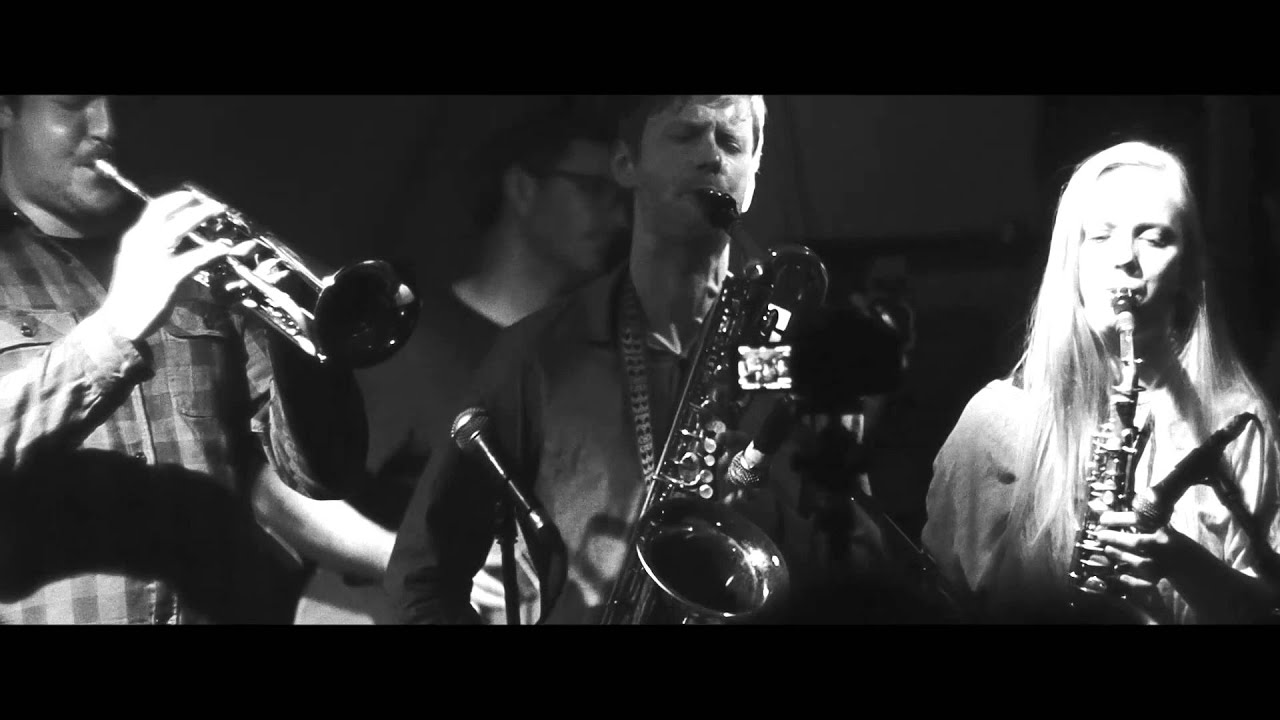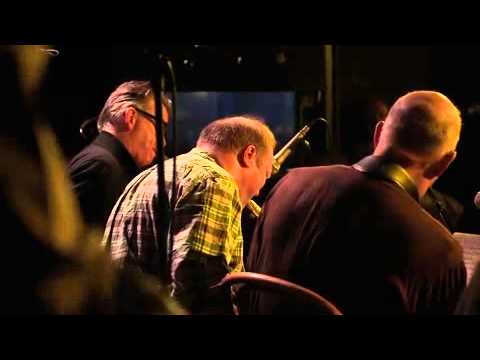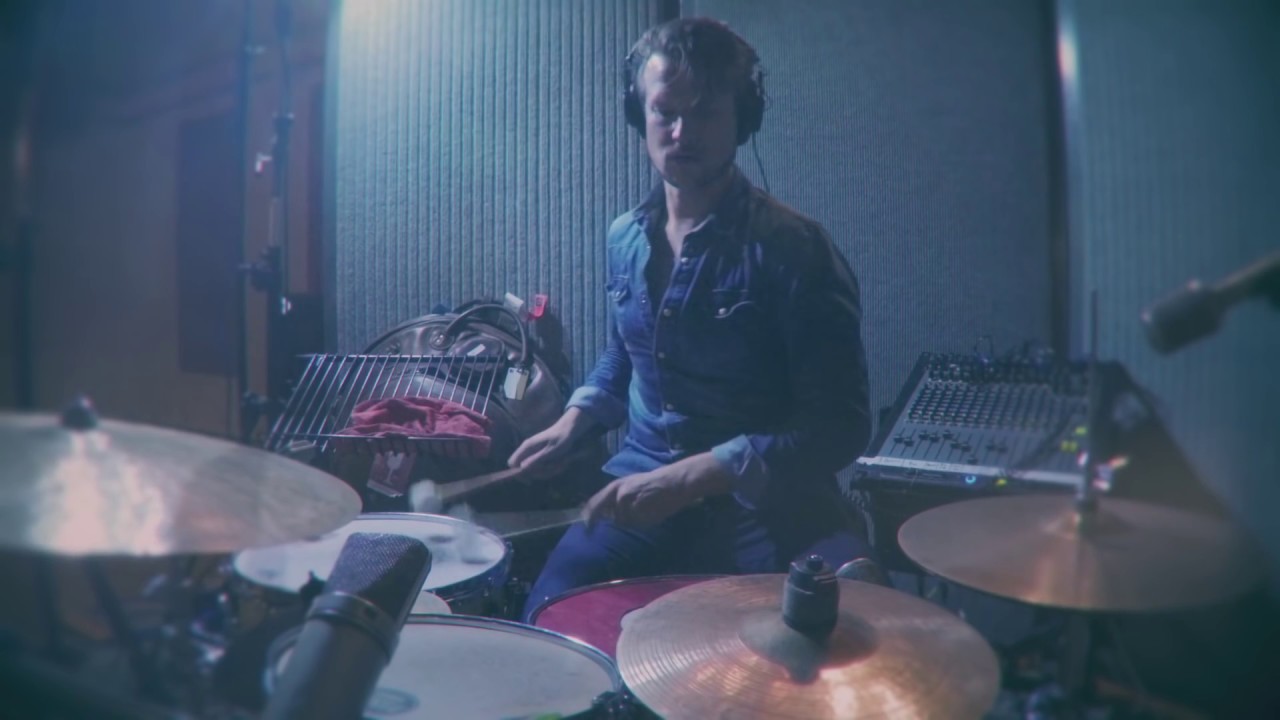Toot toot! Excuse my giddy mood, but spring has brought with it sunshine, greenery and a chattering of freshly hatched jazz. In this April edition of Complete Communion I’ll be focussing on two broad areas: big bands and new UK releases. So that includes new albums from Fire! Orchestra, Large Unit and ICP Orchestra as well as London-Manchester-Macclesfield quintet Sloth Racket and Welsh bassist Huw V. Williams. But I’ll kick things off with three strong new releases which don’t quite fit those categories.
Jamal Moss, Orphy Robinson, Mark Sanders – 01.01.16
(Otoroku)
Hieroglyphic Being & the J.I.T.U. Ahn Sahm Buhl’s We Are Not The First was one of 2015’s most exciting releases, with the acid house outlier taking his Sun Ra obsession to its logical conclusion by working with a crack team of free jazzers led by Marshall Allen. Jamal Moss continues to explore new territory on 01.01.16, a New Year’s Day session with UK maestros Orphy Robinson and Mark Sanders taped live at London’s Café Oto. It’s fantastic, mind-bending stuff, as Sanders gets into rolling drum & bass grooves while Robinson runs his vibraphone through ring modulators and delay to link up with Moss’s cybernetic sounds.
Peter Brötzmann & Heather Leigh – Ears Are Filled With Wonder
(Not Two/Trost)
European free jazz titan Peter Brötzmann and Glasgow-based pedal steel maverick Heather Leigh have become a formidable duo since their debut at Tectonics 2015. Ears Are Filled With Wonder is a different beast to that super-heavy first date, with Leigh’s woozily psychedelic guitar bringing out Brötzmann’s lyrical loverman side. It’s still an intense listen, with Brötzmann coming at Leigh’s beams of white light with ragged tenor sax and tarogato squalls, but the quieter passages find the duo forging an intoxicatingly weird take on the blues.
Ryoko Ono & Rogier Small – Wood Moon
(Jvtland/Toztizok Zounz)
Ryoko Ono is one-half of Sax Ruins, the current incarnation of Tatsua Yoshida’s febrile Zeuhl-rock project, but as this bracing duo set with French percussionist Rogier Small shows, she’s worthy of serious attention as a saxophonist in her own right. Playing the dizzyingly complex music of Ruins requires precise articulation and Ono brings that sharpness to a freer context with aplomb, spiralling through boppish runs and harmolodic riddles, peppering it all with pinched squawks and waspish asides. On one track she switches to a strangely hip vocalese, her gibberish becoming increasingly demented as Smal turns up the heat. The drummer is an excellent foil, driving and physical when he needs to be, while taking inspired detours into metallic percussion abstraction and Sun Ra space trance.
Battle Of The Big Bands
The attraction of big bands in avant-garde jazz and improvisation is obvious; what could be more fun than an unruly gathering of maniacs producing an almighty racket? The world is a far better place for having brain-melting masterpieces like Coltrane’s Ascension in it, or the likes of this batshit Globe Unity Orchestra performance from 1970, where a horn section led by Peter Brötzmann and Evan Parker blow up a storm while Han Bennink gets jiggy with an alpine horn. In such projects, there’s a real mastery of the dynamics and texture of a large ensemble, with waves of sound coming at you from different directions and with different intensities. It makes the parts where everyone goes all out all the more hair-raising. However, large groups can often be frustrating for the obvious reasons: too many cooks, less than the sum of its parts, name your cliché. A handful of new big band releases highlight the strengths and weaknesses of the format.
Fire! Orchestra – Ritual
(Rune Gramofone)
As a member of Brotzmann’s now-defunct Chicago Tentet, Mats Gustafsson has plenty of experience of working in large ensembles. His own Fire! Orchestra, a massive expansion of his trio with bassist Johann Berthling and drummer Andreas Werliin, made an exciting debut with 2013’s Exit. That album had a fantastic, free-wheeling energy, but subsequent attempts to formalise their approach into more structured suites have been disappointing. Ritual is blessedly free from Simon Ohlsson’s hammy pomp rock vocals (seriously, the dude sounds like Matt Berry auditioning for a Scandinavian revival of Jesus Christ Superstar), but like 2014’s Enter there’s a lack of cohesion between the improvised and composed elements, the solo features and the group playing. For example, we’ll have an interlude of rinsing electronic noise from Tape’s Andreas Berthling, but there’s no real attempt to integrate this back into the orchestral arrangement. As a result, it can feel rather bitty: here’s your noise bit, now let’s give the horn section some, and so on. The main problem, however, is the songwriting. Translated into blocky orchestral voicings, the brooding psych-rock riffs that serve the core Fire! trio so well (January’s corking She Sleeps She Sleeps being a case in point) don’t get the space to breathe and accumulate. For the vocal lines, Mariam Wallentin goes for the kind of psychedelic blues mantras which might have worked in a more subdued setting, but sound a bit naff being belted out over lumbering orchestral jazz-rock. I admire Fire! Orchestra for bringing through a new generation of Scandinavian musicians, many of them women, but while it’s always great to hear the likes of Mette Rasmussen and Anna Högberg tearing it up, their own smaller scale projects are more satisfying.
Large Unit – Ana
(PNL Records)
Paal Nilsson-Love, Mats Gustafsson’s old mucker in The Thing, unveiled his Large Unit (no sniggering at the back) in 2014 with the triple-disc Erta Ales. Brimming with energy and ideas, it was a total blast, and the winning streak continues on Ana, which boldly pushes forward by engaging with Brazilian music and musicians. The 28 minute centrepiece ‘Riofun’ never stays still, opening with a twanging berimbau solo by Celio de Carvalho, before taking in noise-damaged samba sections, weird rainforest atmospherics and a tuba solo that appears to be played by an anaconda. It’s a sign of this band’s chemistry that they negotiate these transitions so deftly; there’s a sense of organic development, rather than a series of irritating sub-Zorn jump-cuts.
Trondheim Jazz Orchestra, Kim Myhr And Jenny Hval – In The End His Voice Will Be The Sound Of Paper
(Hubro)
There’s nothing particularly jazzy about Trondheim Jazz Orchestra’s new album with Kim Myhr and Jenny Hval, but it’s an arresting piece of work, setting the latter’s eerie and sensual vocals against chilly strings and the creepy spindles of Rhodri Davies’ harp. On ‘The Beak’ a single-note piano figures pecks its way out of a bass absyss and holds its nerve through folk song fragments and thickets of metal percussion. ‘Mass’ builds powerfully over a minimalist 12-string guitar loop, Hval’s soprano a tiny human presence holding out against a looming terror that is never fully revealed.
ICP Orchestra – Restless In Pieces
(ICP)
Hopping over to the European mainland, we find the Netherlands’ ICP Orchestra (Instant Composers Pool – nothing to do with Insane Clown Posse) having a ball as they romp through tunes by their leader Misha Mengelberg, Charles Ives and Thelonious Monk. There’s a strong Ellington flavour to Mengelberg, Michael Moore and Ernst Glerum’s big band arrangements, but with players like Han Bennink and trombonist Walter Wierbos on board, swinging jazz is rendered askew by eccentric free improv moves. The album ends on a curveball with ‘Anatole’, a piece of jaunty ’60s organ pop with absurdly bilious lyrics. While Restless In Pieces is no classic, it’s reassuring to hear ICP approaching its 50th anniversary with such puckish glee.
Rova Channelling Coltrane – Electric Ascension
(Rogue Art)
Electric Ascension is an altogether more serious affair, as an international line-up of creative music heavyweights pay homage to Coltrane’s 1965 landmark Ascension. The Rova Saxophone Quartet has revisited this project a number of times, working with a number of different musicians to transform Coltrane’s cues into a platform for group improvisation. Not having heard their previous versions, I have to take this 2012 recording from the Guelph Jazz Festival on its own terms, but its openness certainly makes it a more fitting tribute to Coltrane’s original vision than more respectful transcription based efforts. The horn section takes the lead for the opening statement of Coltrane’s theme, which gradually gives way for an electric passage dominated by Nels Cline’s guitar. Some of the strongest passages come from Carla Kihlsted and Jenny Scheinman, whose treated violins hover wraithlike over Ikue Mori’s electronics. Cornettist Rob Mazurek feeds his lines through weird delays that ping pong around the room, while drummer Hamid Drake shows his mastery of fluid rolls and free grooves throughout. Bar an unfortunate burst of slap happy Seinfeld-ery, Fred Frith’s bass playing is rock solid, but someone give him a nice Fender instead of the slick-sounding muso plank he’s playing here. This minor gripe aside Electric Ascension is a powerful testimony to Coltrane’s influence on numerous strands of free music. While the DVD gives some fascinating insights into what the individual players are doing, I found the CD to be the more satisfying aesthetic experience. But it’s nice to have both options, and the documentary in which the musicians reflect on Coltrane’s album and discuss the project, is well worth a watch.
New UK Sounds
Huw V Williams – Hon
(Chaos Collective)
Welsh bassist and composer Huw V Williams is only 25, but his debut Hon marks him out as a writer and bandleader of imagination and wit. Williams is one of the new generation of British creative musicians who seem quite comfortable mixing more conventional tunes and structures with free improvisation. He’s joined by an impressive band that features in-demand trumpeter Laura Jurd, tenor saxophonist Alam Nathoo, piano/accordion player Elliot Galvin and drummer Peter Ibbetson. Perhaps I’m over-romanticising, but there’s a touch of the colliery band to the wistful theme of ‘Beryl’ while the Carla Bley-tinged ‘Rotten Apple Boughs’ pairs a warmly reflective trumpet melody with tender wheezes of accordion. The skewed Cuban strut of ‘Skardu’s Missing’ shows a winningly eccentric side to Williams’ writing, while ‘Mugs’ cheekily grafts a bassline half-cribbed from ‘Smells Like Teen Spirit’ into a spy thriller gallop.
Sloth Racket – Triptych
(Luminous Label)
London-based saxophonist Cath Roberts runs the LUME platform for improvised music with Dee Byrne. Her group Sloth Racket was formed for the Gateshead Jazz Festival in 2015 and their debut album is an agreeably spicy goulash of free improvisation, grungy riffs and bluesy themes. Roberts’ baritone sax gives Sloth Racket’s music a gritty, slightly oddball sound and together with tenor player Sam Andreae, bassist Seth Bennet and drummer Johnny Hunter she keeps things wild and hairy, even on the quieter, more abstracted passages. Guitarist Anton Hunter plays the wild card, bringing fuzztone glissandi to ‘Crossed Swords’ and nibbling curiously at the concentric structures of ‘Circling’.
Tom Bancroft: Trio Red – Lucid Dreamers
(Interrupto Music)
On second album, Lucid Dreamers, Tom Bancroft’s Trio Red has hit its stride. The Scottish drummer and bandleader has developed a great rapport with pianist Tom Cawley and bassist Per Zanussi, successfully integrating diverse musical elements into a distinctive group sound. ‘Saturday Afternoon (With Sophie)’ delights with its infectious Calypso bounce, while the tripartate title track deftly moves from delicate balladry to abstract rumination via a stormy free improvisation. Despite its wacky title, ‘Monsieur Pompouse Takes a Stroll’ sounds not unlike an acoustic take on the industrial dub of 23 Skidoo, with the players fighting their way out of shadowy percussive corners.
Phronesis – Parallax
(Edition Records)
Parallax, the sixth album from the UK/Scandinavian piano trio Phronesis, is in some ways the most mainstream jazz release in this month’s roundup, but it would be a shame to overlook this impressive effort just because it’s short on skronk. This is a classy affair, but it’s far removed from the insipid post-EST piano minimalism of Go Go Penguin and the like. While the band’s themes have that bright and breezy quality associated with contemporary Scandinavian piano music, there’s a refreshing vigour to the playing that always keeps things exciting. Pianist Ivo Neame combines a graceful melodic right hand with a gutsy left as he rides Anton Eger’s intricate beat-splicing drum parts. Jasper Høiby’s double bass brings fluidity and weight, and, on the closing ‘Rabat’ a striking touch of arco dissonance.





